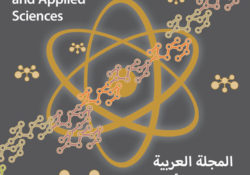tandfonline.com har udgivet en rapport under søgningen “Teacher Education Mathematics”: Emotions in Reading and Learning from Texts: Progress and Open Problems Link til kilde
Like this:
Like Loading...
tandfonline.com har udgivet en rapport under søgningen “Teacher Education Mathematics”: ABSTRACT Formulae display:?Mathematical formulae have been encoded as MathML and are displayed in this HTML version using MathJax in order to improve their display. Uncheck the box to turn MathJax off. This feature requires Javascript. Click on a formula to zoom. ABSTRACT Teachers frequently employ surface-acting strategies to regulate emotions and to be more effective. This can be detrimental for teachers’ health but the effects of such inauthentic emotion expressions on students are largely unexplored. In two exploratory studies we investigated the impact of teachers’ emotions and emotional authenticity (expressing truly felt emotions) on students’ emotions of enjoyment, anger, and anxiety. In study 1 we used generalised (trait-level) assessments from teachers (N = 81) and students (N = 786) on emotions and emotional authenticity.… Continue Reading →
Like this:
Like Loading...
tandfonline.com har udgivet en rapport under søgningen “Teacher Education Mathematics”: ABSTRACT ABSTRACT This study investigated the time effect of cooperative games on students’ emotions of learning science and the treatment effect on their chemistry achievement. This quasi-experimental study compared the use of cards, board games, and riddles, and the use of conventional paper-and-pencil exercises to learn the basics of chemical elements and compounds, for a duration of 4 weeks. One hundred and fourteen ninth graders at an urban public high school in Taipei were involved. The results revealed that the experimental group had significantly higher positive emotion and lower negative emotion throughout the intervention period. While no time effect was observed for the experimental group, a significant time effect on positive and negative emotions in the comparison group using exercises… Continue Reading →
Like this:
Like Loading...
eric.ed.gov har udgivet: Mathematics has been perceived as a discipline centered on intellectuality. However, recent studies have found interaction between a variety of emotions and the quality of learning. This qualitative study focused on the characteristics of those who are willing to cope with mathematical challenges and on the emotions evoked by these challenges, and sought to evaluate the potential role of positive emotions in this context. The research was conducted among participants in the Israel International Math Competition for Girls (IIMCG). The participants were 12 of the top finalist competitors in the previous competitions. Research instruments included an in-depth interview and a Math Emotions Measuring Instrument (MEMI), measuring the emotions expressed while coping with the mathematical challenges. Major results indicated the intensity of positive emotions. The positivity ratio was… Continue Reading →
Like this:
Like Loading...

tandfonline.com har udgivet en rapport under søgningen “Teacher Education Mathematics”: ABSTRACT ABSTRACT Background: In response to reform recommendations calling for students’ engagement in scientific practices and the lack of the enactment of such practices in science classrooms, we explored the implementation of scientific practices with special emphasis on model-based inquiry in a secondary science teacher preparation program. Sample: The participants of this study were 26 preservice secondary teachers who engaged in a specially designed sequence that emphasized scientific practices. Purpose: Our aim in this study was to examine the impact of this specially-designed sequence on the participants’ views about the usefulness of scientific practices as a pedagogical approach, their intentions in implementing scientific practices as future teachers, and the nature of the emotions they experienced throughout their engagement in the sequence. Design and… Continue Reading →
Like this:
Like Loading...
tandfonline.com har udgivet en rapport under søgningen “Teacher Education Mathematics”: Abstract Abstract Given that the transition to university is a stressful experience, the present study aimed to assess how emotions affect eating behavior among students from the University of Bahrain. This was a cross-sectional study on 169 undergraduates, aged 17 to 36 years (average age, 20 ± 3 years), who completed an online survey that included questions based on the validated Emotional Appetite Questionnaire. The results showed that neither gender nor marital status had an effect on the reported eating behavior under different emotional states. Moreover, the majority of students reported eating less during negative emotional states (fear, sadness, anger, stress and depression). However, under loneliness and happiness, students tend to either sustain their food intake (45.6% and 55.0%, respectively) or to increase their… Continue Reading →
Like this:
Like Loading...
eric.ed.gov har udgivet: This paper attends to teacher intellectual risk-taking when attached to expression of positive emotions, in order to explore some of the reasons why teacher risktaking may not appear in mathematics lessons. We know that risk-taking can be beneficial, but research has not really examined what form this might take in a classroom. In recent research, I investigated how positive emotions are discussed and used by experienced mathematics teachers. In particular how to examine the ‘in-the-moment’ emotions of the teacher, and what the modelling of experienced teachers tells us about the role of affect in mathematics teaching. This paper examines some affect episodes for elements of teacher risk-taking. The evidence suggests that teacher risk-taking enables the use of emotions, and vice versa, is integral to ‘good’ teaching, and… Continue Reading →
Like this:
Like Loading...




